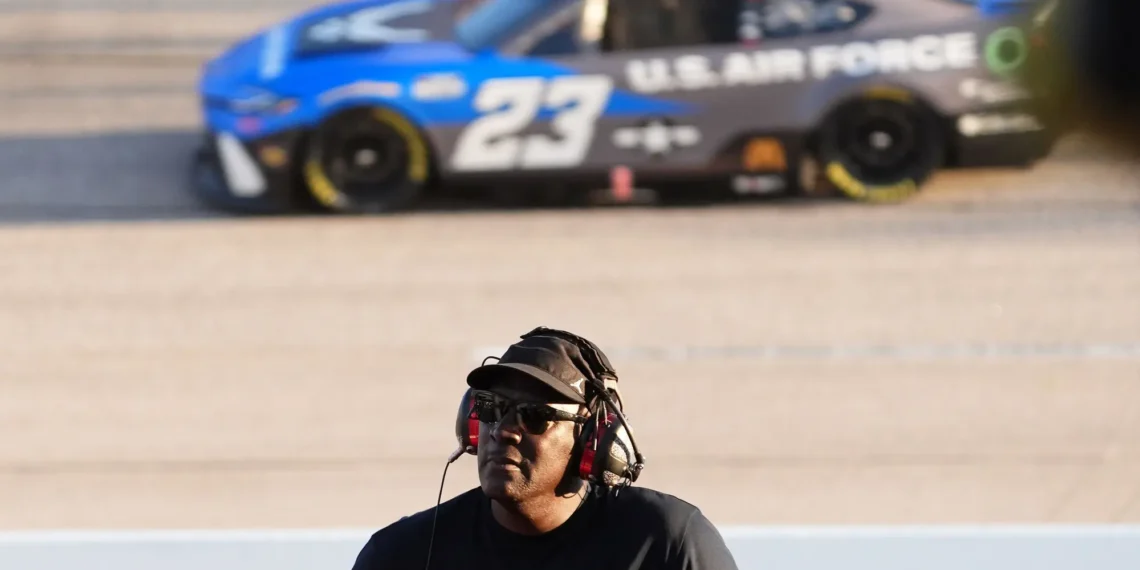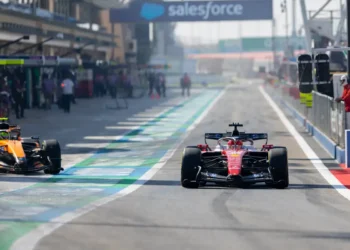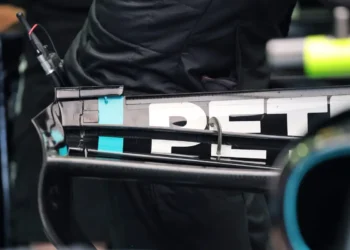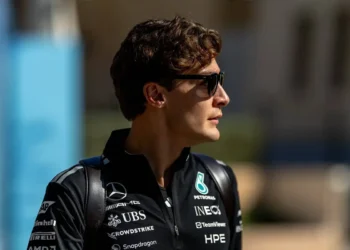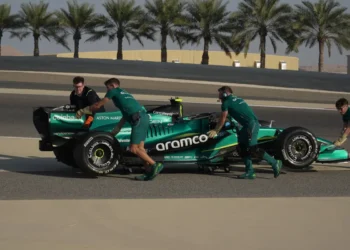NASCAR’s High-Stakes Legal Showdown: Contingency Plans Unveiled Amid Antitrust Drama!
In a stunning turn of events, NASCAR finds itself embroiled in a fierce legal battle that could reshape the future of racing as we know it. The conflict, stemming from a legal filing late Friday, pits the powerhouse organization against two ambitious teams, 23XI Racing and Front Row Motorsports, in a contentious antitrust dispute that has far-reaching implications for the sport.
At the heart of this brewing storm is a request from 23XI and Front Row for a summary judgment on NASCAR’s counterclaim. This request could see the court dismiss NASCAR’s allegations of anticompetitive behavior or separate the case entirely, allowing the focus to shift back to the original claims. NASCAR’s counterclaim, filed back in March, accuses the teams of orchestrating a boycott of the 2024 Duel at Daytona and employing illegal negotiating tactics concerning the charter agreement extension for 2025-2031.
The legal representation for the teams did not hold back, boldly stating that NASCAR’s counterclaim barely survived preliminary scrutiny, with Judge Kenneth D. Bell now poised to decide on its merits come December 1. The stakes couldn’t be higher: 23XI and Front Row are demanding that NASCAR “put up or shut up” as they challenge the validity of the antitrust claims.
NASCAR’s challenges are steep. To prevail, they must convincingly argue that Curtis Polk, a key figure in 23XI Racing and a longtime ally of co-owner Michael Jordan, conspired with the teams to impose an unreasonable restraint of trade. However, the teams assert that collective negotiations are not only legitimate but were also effective, with 13 out of 15 teams agreeing to terms, demonstrating a robust negotiation landscape that contradicts NASCAR’s claims.
In a scathing rebuttal, the filing contends that Polk did not orchestrate any joint efforts and that his involvement was minimal compared to the long-standing negotiations that predated him. The evidence, they argue, shows that other teams often diverged from Polk’s views, undermining NASCAR’s assertions of a coordinated conspiracy.
Adding fuel to the fire, NASCAR’s accusations of a boycott attempt by Polk lack substance, as the alleged boycott did not materialize. In response to the threat of disruption, NASCAR has developed an elaborate contingency plan, dubbed the “Gold Codes,” designed to mitigate the impact of potential boycotts. This plan is nothing short of revolutionary, outlining strategies that could shrink the race field to 30 cars or incorporate Xfinity and ARCA vehicles into the mix.
NASCAR’s ambitious strategy includes a comprehensive operational overhaul, with plans to build a dedicated shop for the cars and allocate staggering budgets for driver salaries and crew members, totaling up to $72 million for drivers alone. With documentation detailing these contingency responses dating back to June 27, 2024, NASCAR is clearly preparing for a future where disruption is a reality.
The legal arguments are further complicated by NASCAR’s own internal assessments, which reveal that there are over 150 teams licensed to compete in the Cup Series. This raises the question: can NASCAR genuinely claim injury from the actions of just 15 chartered teams when there are so many potential competitors ready to step in?
As both sides brace for a showdown in court, the implications of this legal battle extend far beyond the courtroom. Whether NASCAR can successfully navigate these turbulent waters will determine not only the fate of the involved teams but also the future structure and competitiveness of the sport itself. With tensions running high and a jury trial looming, the racing world is left on the edge of its seat, eager to see how this high-stakes drama unfolds. Buckle up—this race is just getting started!

